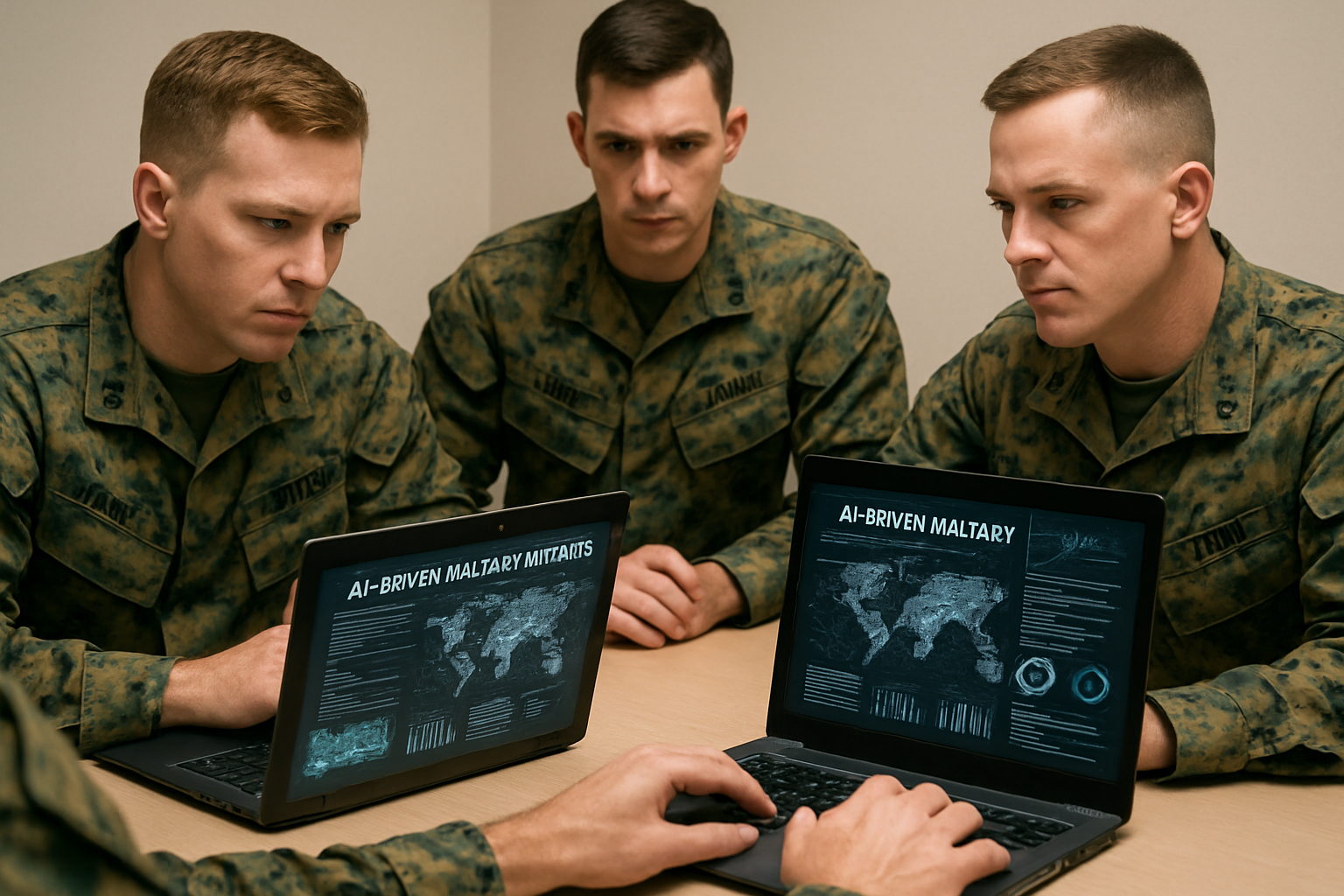Quick Take
- Marines host 5-day GenAI workshop Nov 17-21, 2025 at Quantico targeting ‘cognitive overmatch’ capabilities
- 15th Marine Expeditionary Unit successfully deployed GenAI in Pacific operations during 2024
- Workshop requires senior personnel: GS-12 to GS-15 civilians, O-3 to O-6 officers, E-7 to E-9 enlisted
- Initiative reflects broader US military AI race against China and Russia in strategic competition
- Marines adopt ‘distrust and verify’ approach balancing innovation with operational security
The US Marine Corps advances artificial intelligence integration through a strategic workshop targeting cognitive superiority against global adversaries, with proven Pacific deployment success driving enterprise-wide AI adoption.
The United States Marine Corps is pushing forward with artificial intelligence integration through a comprehensive five-day Generative AI Workshop scheduled for November at Quantico, Virginia. The strategic initiative shows the Marines’ methodical approach to achieving ‘cognitive overmatch’ – the capability to out-think, out-decide, and out-pace adversaries in today’s strategic competition.
MARADMIN 410/25 confirms the workshop will test GenAI technologies against actual Marine Corps operational challenges. Lt. Gen. Melvin Carter, deputy commandant for information, notes that GenAI systems can “revolutionize mission processes by enhancing operational speed and efficiency,” pointing to how decision-making speed increasingly shapes warfare outcomes.
Structured Military AI Evaluation Framework
The USMC Service Data Officer will lead this practical evaluation using a systematic three-phase approach. Days 1-2 concentrate on command-specific GenAI use case presentations and introductions. Days 3-4 showcase joint and industry partner solution demonstrations with hands-on testing. Day 5 wraps up with developing actionable Courses of Action for GenAI integration across Marine operations.
Participation demands senior personnel: GS-12 to GS-15 for civilians, O-3 to O-6 for officers, and E-7 to E-9 for enlisted ranks. Each participant must submit real-world GenAI use cases and deliver focused 10-15 minute presentations, making sure practical application drives the evaluation process.
Proven Pacific Operations Success Validates Approach
The 15th Marine Expeditionary Unit proved GenAI effectiveness during Pacific operations in 2024. Maj. Victor Castro, communications officer, reported successful deployment of generative AI for staff functions on both classified and unclassified systems, especially for creating summaries of situation reports and intelligence data.
Capt. Kristin Enzenauer highlighted Vannevar Labs’ AI tool that filters foreign media mentions of Marine units, providing biweekly summaries showing how operations impact global information environments. This intelligence capability proves essential for modern military planning in contested information spaces.
Risk Management and Security Protocols
Marine Corps instruction NAVMC 5239.1 requires a ‘distrust and verify’ approach to GenAI outputs, recognizing that AI models may ‘hallucinate’ or generate false information. Commands must establish governance processes balancing innovation benefits with operational security requirements.
Every major command will establish AI Task Forces consisting of data, knowledge management, and digital operations experts. These teams assess existing GenAI offerings and create preferred capability lists for organizational reference, ensuring standardized evaluation criteria across Marine units.
Generational Advantage Accelerates Military Adoption
Gen. Eric Smith, Marine Commandant, expressed confidence in young Marines’ AI adoption capabilities: “My Marines are digital natives. They grew up with an iPhone 14 in their hands…They’re completely comfortable with generative AI.”
This generational advantage could speed up military AI deployment compared to traditional enterprise adoption cycles, with demographic factors significantly influencing technology integration success rates across defense organizations.
Strategic Competition Drives Innovation Urgency
The Marines’ GenAI initiative reflects broader US military modernization amid strategic competition with China and Russia. Cognitive overmatch capabilities could determine future conflict outcomes, with allied nations closely watching this approach for their own AI integration strategies.
For defense contractors and AI developers, the workshop format suggests growing demand for industry-military collaboration on AI solutions. Companies demonstrating real-world military applications may secure competitive advantages in the expanding defense AI market.
Enterprise Transformation Lessons for Business Leaders
The Marines’ methodical approach offers valuable lessons for business executives managing technology integration. Key success factors include structured pilot programs, cross-functional expert teams, comprehensive risk assessment, and balanced innovation strategies that prioritize security alongside capability enhancement.
The November workshop represents systematic organizational transformation rather than rushed technology adoption. As AI reshapes competitive landscapes globally, the Marines’ disciplined implementation framework provides a strategic playbook for responsible innovation across industries facing similar technological disruption challenges.




